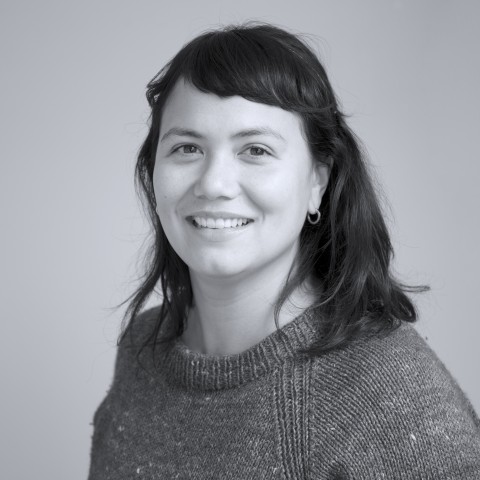Landmark Occasion: The First European NAISA Meeting
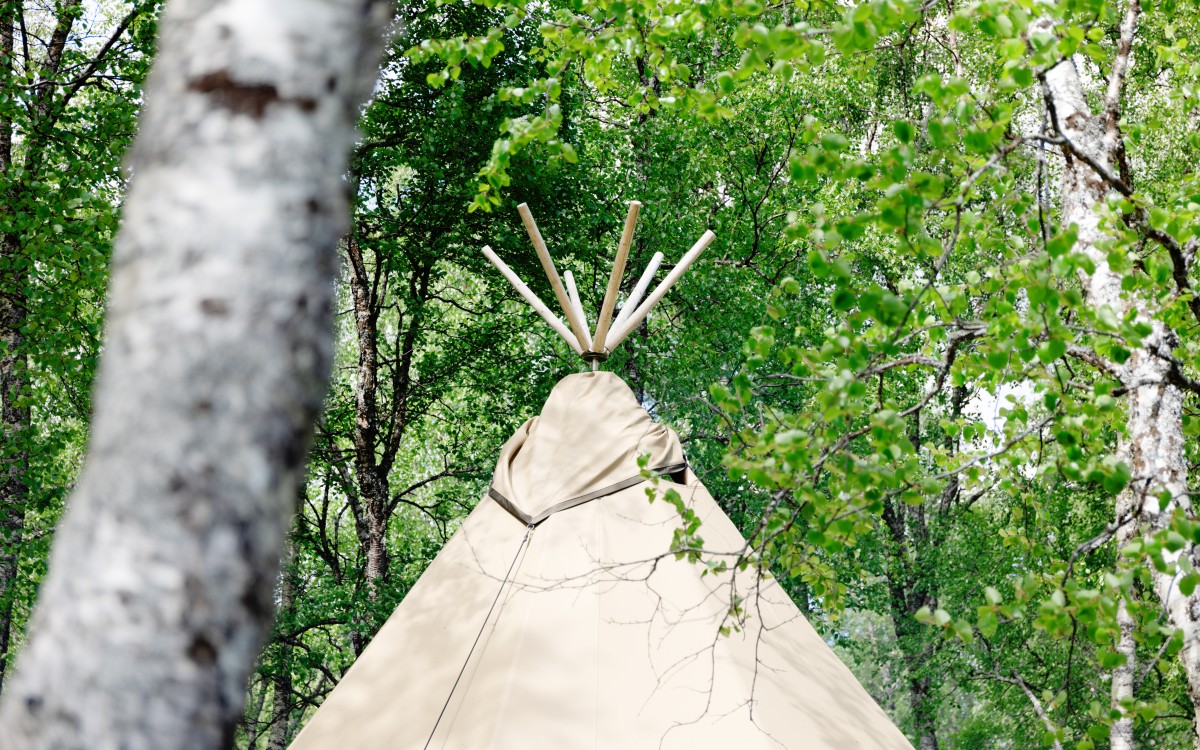
NAISA hosts an annual meeting that addresses Indigenous issues. This year, the conference took place for the first time in Europe and Bodø. The Nordland Research Institute and Nord University hosted this year's NAISA meeting between June 6 and 8, 2024.
The Native American and Indigenous Studies Association (NAISA) is a significant scholarly organisation that addresses Indigenous issues and engages Indigenous communities. Its international and interdisciplinary network of members includes professional academics, students, independent researchers, community-based educators, and Elders.
NAISA started with exploratory meetings at the University of Oklahoma in 2007 and the University of Georgia in 2008. It was officially incorporated in 2009 and has since become the premier international and interdisciplinary professional organisation interested in all aspects of Indigenous Studies.
NAISA hosts an annual meeting that brings together faculty and students from colleges, universities, tribal colleges, community-based scholars and elders, and independent professionals in the field. This year, the conference took place for the first time in Europe and Bodø. The Nordland Research Institute and Nord University hosted this year's NAISA meeting between June 6 and 8, 2024.
Seminar on Indigenous and Sámi Food Systems
On 4 June, our Senior Researcher Camilla Risvoll hosted a seminar on Indigenous and Sámi Food Systems as a pre-conference event. The MÁHTUT project partners, the Sámi Parliament of Norway, and the Nordland Research Institute organised the event. They aimed to explore topics related to Sámi food systems, food sovereignty, and the circular economy.
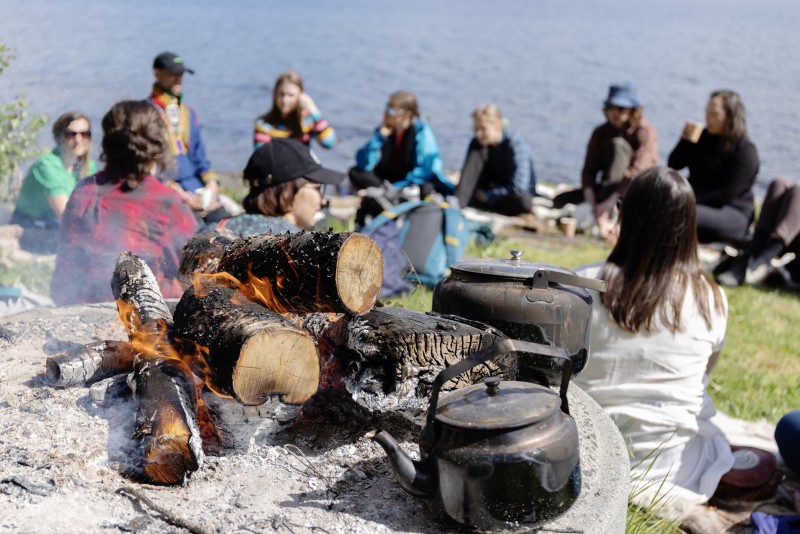
-I believe that meeting people in their own environment and experiencing the landscape firsthand is important. As researchers, we spend much time in the office. It's crucial that we have the opportunity to visit where people live, listen to their stories and knowledge in their environment! - says Risvoll, who presented an overview of local food systems in the Sállto (Salten) region.
The seminar included presentations on the significance and challenges of preserving traditional food systems, the influence of the Sámi community on EU policy, and a deep dive into the MÁHTUT project, which focuses on Sámi knowledge and practices in the context of the green transition.
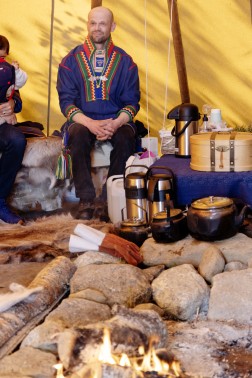
All participants took a field trip to the Vatnvatnet area and met with Duokta reindeer herding district representatives. Mats Pavall, the excursion organiser, facilitated discussions on developing Sámi food policy and sovereignty. The highlight was a guided tour led by local reindeer herders, who shared their knowledge about the natural environment and modern reindeer herding practices. Participants also had the opportunity to enjoy a traditional Sámi meal of Bidos (meat soup), and gáhkku (Sámi bread) served in a lavvu (a traditional Sámi tent) against the backdrop of stunning lake and mountain scenery.
-The chance to have conversations over coffee and food, like we did today, was wonderful. Bringing together people from different parts of the world, including researchers, managers, and residents who play a vital role in the area's food systems, lays the groundwork for mutual understanding across cultures and a deeper understanding of the complexities within each unique context - Risvoll sums up.
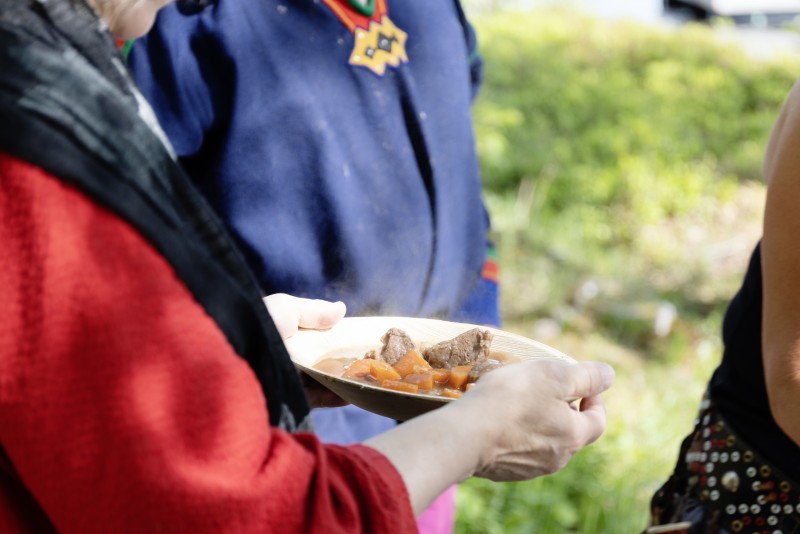
Co-creation of sustainable food systems using maps in coastal Sámi communities in Salten, northern Norway
At a NAISA conference session about Re-mapping and Mapping Land & Landscapes, our Researchers Camilla Risvoll and Helena Gonzales Lindberg presented their work on exploring maps to co-create knowledge about local food systems.
Current food-producing practices, such as pastoralism (e.g., reindeer husbandry, and sheep farming), and harvesting practices, such as berry picking, fishing, and hunting, are carried out in close relation to land and fjordscapes, encompassing material and intrinsic values. In the mapping and environmental governance of Salten, such practices often remain invisible even though they form the backbone of the regional culture, nourishing and sustaining the local food system.
"When local knowledge and practices are silenced in maps used to regulate or plan an area, they are often considered less important in the planning. But when someone must define their practices onto a map, it also contributes to defining them in ways that may be unnatural and disempowering." - Lindberg points out.
Although not without its pitfalls and power implications, maps can help bridge local and generational practices and knowledge, including personal relations to places and spaces, with scientific knowledge. Therefore, maps are a starting point for conversation, bringing people together to highlight the often-ignored local practices and knowledge.
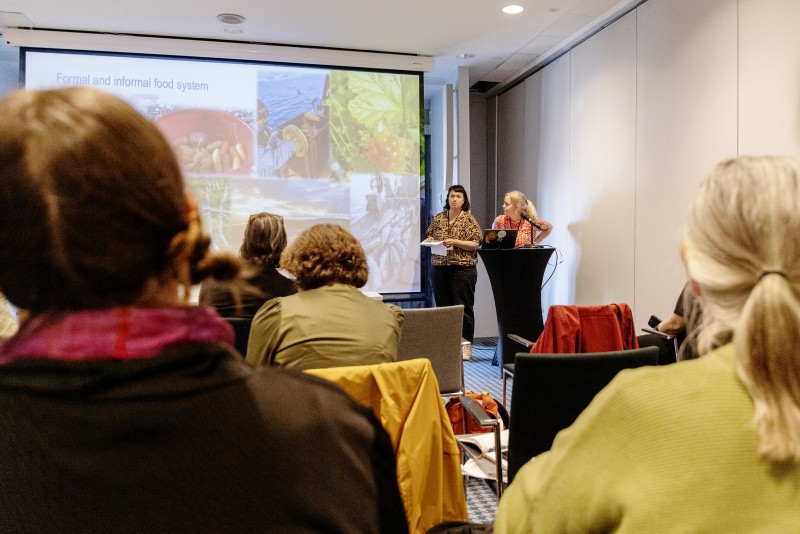
Indigenous Methodologies
NRI's senior researcher, Majken Paulsen, participated in the local host committee and was involved in planning the NAISA conference. She also organised a session on Indigenous methodologies, addressing new ways of doing, new ways of reading, and new ways of researching existing materials.
-Indigenous methodologies are essential because they allow Indigenous People and scholars to define and frame what is relevant and produce knowledge based on their knowledge systems and needs. This approach prevents them from being objectified through the "exotic lenses" of an Anglo-European academic middle class - Paulsen said.
Audrey Medwayosh discussed grief in an urban indigenous setting during the Paulsen session. She emphasised the value of connections and companionship through participation in her research, which she found was more important than publications. This was an essential part of the NAISA conference—giving a chance to participate, express Indigenous research, and give voice to different perspectives.

